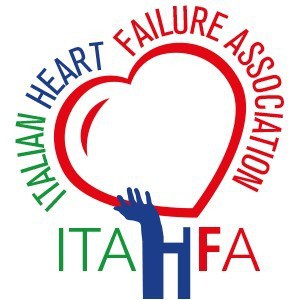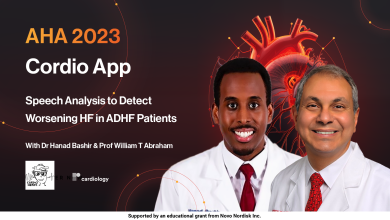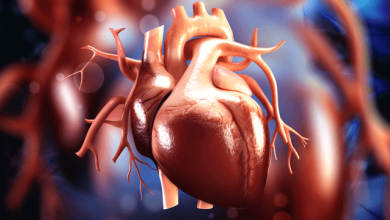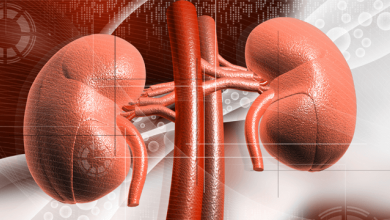Search results
Author(s):
William T Abraham
,
Hanad Bashir
Added:
5 months ago
AHA 23 — Dr Hanad Bashir, CardioNerds ambassador, interviews Prof William T Abraham (The Ohio State University, US) on the findings of a clinical evaluation of the Cordio app in adult patients with acute decompensated heart failure.The Cordio "HearO" app (Cordio Medical) uses patient speech sampled via mobile phone to sense fluid accumulation related to chronic heart failure, and provides alerts…
View more
Author(s):
Alberto Aimo
,
Giosafat Spitaleri
,
Dario Nieri
,
et al
Added:
2 years ago
SGLT2 Inhibitors in HFpEF
Author(s):
Brent Deschaine
,
Sahil Verma
,
Hussein Rayatzadeh
Added:
1 year ago
Article
Author(s):
Joe Gallagher
,
Chris Watson
,
Patricia Campbell
,
et al
Added:
3 years ago
Increasingly biomarkers are of interest in cardiovascular disease (CVD) for risk stratification. In particular, natriuretic peptides (NPs), which were originally used for the diagnosis of heart failure, are now finding a role in identifying those most at risk of heart failure and other cardiovascular (CV) disorders. Their ability to be measured rapidly through blood tests makes their widespread…
View more
Author(s):
Giuseppe Rosano
,
Ilaria Spoletini
,
Cristiana Vitale
,
et al
Added:
3 years ago
Heart failure (HF) affects 1–2% of the population in developed countries and absorbs a significant amount of human and economic resources.1,2 HF is a complex syndrome characterised by a spectrum of symptoms and phenotypes: HF with preserved ejection fraction, HF with mid-range ejection fraction and HF with reduced ejection fraction (HFrEF).3 Differentiating patients according to left ventricular…
View more
Demosthenes G Katritsis
Job title: Editor-in-Chief, Arrhythmia & Electrophysiology Review (AER)
Author
Author(s):
Maria Rosa Costanzo
Added:
3 years ago
Approximately 90% of the more than 1 million yearly heart failure hospitalisations in the US and Europe are a result of symptoms and signs of fluid overload and are associated with readmission rates of 24% and 50% at 30 days and 6 months, respectively.1,2 Recurrent heart failure-related hospitalisations have uniformly been associated with worse outcomes, independent of age and renal function.3
…
View more
Author(s):
Oren Caspi
,
Doron Aronson
Added:
3 years ago
Heart failure is a growing pandemic worldwide, and it is associated with a high burden of morbidity and mortality. Acute heart failure (AHF) is one of the most prevalent causes of adult patients’ hospitalisation. While the treatment of most cardiovascular diseases has significantly improved since the beginning of this century, the outcomes of AHF have not progressed significantly, and AHF still…
View more
Author(s):
Joseph Gallagher
,
Kenneth McDonald
,
Mark Ledwidge
,
et al
Added:
3 years ago
Patients with heart disease in Africa commonly present with heart failure both for admission to hospital1 and in the outpatient setting.2 Recent data suggests that, in line with high income countries, heart failure with preserved ejection fraction is also becoming more common.3 Data from the 12 clinical studies performed before 2005 in eight sub-Saharan Africa (SSA) countries have shown that up…
View more
Author(s):
A Mark Richards
Added:
3 years ago
Ideally biomarkers provide the clinician with assistance in one or more of: (i) diagnosis, (ii) prognosis, (iii) choice and titration of therapy, (iv) monitoring progression of disease and (v) assessing response to treatment. The best-established biomarkers in acute decompensated heart failure (ADHF) are the B-type natriuretic peptides (brain natriuretic peptide [BNP] and N-terminal of the…
View more















 « First
« First